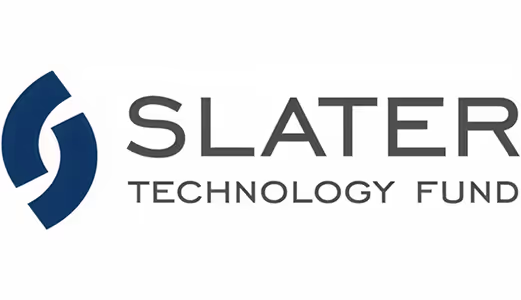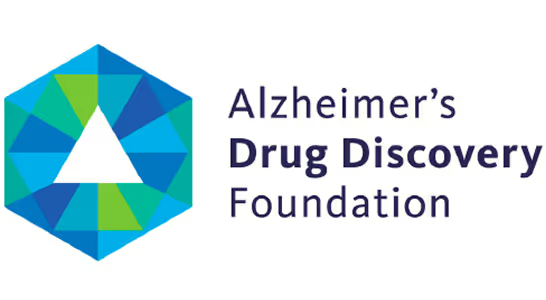MindImmune is developing novel therapies designed to stop neuroinflammatory disease progression, preserve neuronal connections and protect brain health so people can live with dignity.

Team
MindImmune’s scientific co-founders collectively bring over a century of successful drug discovery experience from their leadership positions at large and mid-size pharmaceutical companies, as well as in biotech.

Before founding Octagon, Isaac held strategic and operational roles at FireFly BioWorks, Ion Torrent, PureTech Health, the the Martin Trust Center for MIT Entrepreneurship. In these positions, he helped launch and support multiple early-stage biotech companies. His work spans antibody and small-molecule drug discovery, translational immunology, and the integration of genomic and biomarker technologies and data. Mr Stoner is an EIR at the Slater Technology Fund and an advisor at KdT Ventures.
Isaac holds degrees from Brown University and MIT and continues to be widely involved in the broader Boston/Cambridge biotechnology ecosystem. He is motivated by the opportunity to build teams, advance transformative science, and develop medicines that meaningfully improve patients’ lives.

Prior to co-founding MindImmune Therapeutics in 2016, Dr. Zorn was Executive Vice President and Site head for Neuroscience Research for Lundbeck’s USA Research Site, Lundbeck Research USA, and board member for Lundbeck USA. While at Lundbeck, Dr. Zorn held several positions and sat on various committees, most notable Lundbeck’s Global Research Committee and the R&D Executive Committee. During his tenure at Lundbeck, he established a consortium of scientists that brought together disciplines of immunology, inflammation, and neuroscience to capitalize on the recently growing knowledge base showing the relationship between Neuroinflammation and CNS diseases to advance new approaches for the treatment of mental illness.
Prior to Lundbeck, Dr. Zorn was with Pfizer Global Research and Development for nearly 20 years, holding various positions including head of General Pharmacology, Alzheimer’s Disease Clinical Development Team Leader, Head of Psychotherapeutics Biology, Head of Neuroscience Therapeutics, Co-Chair of the Global Neuroscience Therapeutic Area Leadership Team, and Vice President and Global Therapeutic Area Head for Central Nervous System Disorders Research. Dr. Zorn became Pfizer’s first global head of Neuroscience Research and was co-architect of what became the company’s overall Neuroscience area strategy. As member of the Discovery Research Management Team of the Ann Arbor Pfizer site, Dr. Zorn was also jointly accountable for site deliverables from five therapeutic areas: Neuroscience, Cardiovascular, Inflammation, Dermatology, and Infectious Diseases.
Across his industry career, Dr. Zorn shepherded or led research generating dozens of drug candidates from Lundbeck and Pfizer in clinical development for multiple indications; many have progressed to phase II/III or have advanced into commercialization.
Dr. Zorn is currently a Ryan Research Professor of Neuroscience, at the George and Anne Ryan Institute for Neuroscience, and an adjunct Full Professor of Biomedical and Pharmaceutical Sciences at the College of Pharmacy, both at the University of Rhode Island.
Dr. Zorn received a BS degree in Chemistry from Lafayette College, Easton, PA, and MS and Ph.D. degrees in Neurotoxicology and Neuropharmacology, respectively, from the University of Texas Graduate School of Biomedical Sciences, Houston, TX.
Subsequent postdoctoral research studies centered on basic research of brain and intracellular neuronal signaling mechanisms at the Rockefeller University, New York, NY, in the laboratory of Paul Greengard (Nobel Laureate).

A trusted counselor across software, biotech, internet, and technology sectors, he is known for guiding organizations through growth, transformational change, and complex financial transactions.

Dr. Menniti started his career at Pfizer (1992-2009) and rose to the rank of Research Fellow, where he was a principal in developing the scientific rationale for use of NMDA receptor GluN2B antagonists for stroke, neuropathic pain, Parkinson’s disease, and depression. Dr. Menniti also played a leading role in developing the therapeutic rationales and early clinical development of phosphodiesterase inhibitors for neuropsychiatric disease. Dr. Menniti also led the discovery teams that advanced the first PDE9A inhibitor into Phase II testing for Alzheimer’s disease and the first PDE5A inhibitor into Phase II testing to improve functional recovery after stroke.
After Pfizer, Dr. Menniti founded two CNS-focused biotech companies, Mnemosyne Pharmaceuticals and MindImmune Therapeutics. Dr. Menniti served as Chief Science Officer of Mnemosyne (2010-2015) and was the principal architect of the company’s Subunit- selective NMDA Receptor Modulators platform. Mnemosyne’s novel therapeutics for depression and schizophrenia were acquired by Novartis in DATE.
Since 2015, Dr. Menniti has served as the Chief Science Officer of MindImmune and is a Ryan Research Professor of Neuroscience, at the George and Anne Ryan Institute for Neuroscience, and an adjunct Full Professor of Biomedical and Pharmaceutical Sciences at the College of Pharmacy, both at the University of Rhode Island.
Dr. Menniti received his Ph.D. in Pharmacology from the University of North Carolina, Chapel Hill in 1987 and was a Staff Fellow in the laboratory of Dr. James W. Putney at the National Institute of Environmental Health Sciences (1988- 1992), participating in research elucidating the fundamentals of inositol phosphate and intracellular calcium signaling.

As a Professor at the University of Rhode Island and Deputy Executive Editor for the Alzheimer’s Association’s flagship journal, he brings scientific rigor and strategic vision to his work.

Dr. Nelson jointly established and built one of the first neuroinflammation units in the industry, which served as a primary focus of US research by Lundbeck. At Lundbeck, Dr. Nelson was on the US research management team responsible for design and execution of drug discovery strategy (2010-2015). He created and headed a research division that identified peripheral immune mechanisms acting across the blood-brain barrier to propagate multiple neurological disorders, including Alzheimer’s, Parkinson’s and small vessel disease (SVD) and was project lead on two academic/industrial collaborations pursuing biologics-based therapeutic candidates for AD and progressive MS.
Prior to joining Lundbeck, Dr. Nelson was an Associate Research Fellow in the CNS Discovery group at Pfizer, Inc. (1991-2009). While at Pfizer, Dr. Nelson led a project that was nominated for clinical development of a prototype nNOS inhibitor CP-601,073 for stroke and stroke recovery. Dr. Nelson was also the biology lead on a joint collaboration with TransTech Pharmaceuticals that resulted in the nomination of TTP- 488, a RAGE antagonist for Alzheimer’s disease.
In conjunction with his responsibilities as Vice President of Biology of MindImmune Therapeutics, Inc., Dr. Nelson is a Ryan Research Professor of Neuroscience, at the George and Anne Ryan Institute for Neuroscience, and an adjunct Full Professor of Biomedical and Pharmaceutical Sciences at the College of Pharmacy, both at the University of Rhode Island.
Dr. Nelson received his Ph.D. from Northwestern University (Neuroscience program/Dept. of Psychology) in 1987 and was a Freudenberger Research Fellow in the laboratory of Dr. Huntington Potter at Harvard Medical School from 1989-1991, studying the role of CNS proteases in neurite outgrowth, astrocytic differentiation, and aberrant protein production/protein refolding.

Dr. Prod’homme started his career at Pfizer, where he demonstrated the efficacy and pharmacological properties of multiple drug candidates in a model central nervous system (CNS) autoimmunity. At Momenta Pharmaceuticals, he held positions of increasing responsibility, and managed the preclinical development and development to clinical testing of two drug candidates. He also developed a translational approach that identified the respective transcriptional signatures of responders and non-responders to anti-TNF therapies in RA patients prior to treatment. A Kiniksa Pharmaceuticals, while managing the Translational Biology group, he developed the clinical biomarker program for Vixarelimab (anti-OSMRβ). At Myeloid Therapeutics, he created and led the Translational Research department that transitioned the first CAR-monocyte cell therapy and in vivo CAR-M therapy from Discovery to Phase I/II clinical trials, which included the design and execution all preclinical experiments for both INDs, as well as the design, the implementation of the clinical biomarker program and the development and qualification of various CMC assays. Most recently, at Mirai Bio, while managing the Translational Research group, Dr. Prod’homme was responsible for the development of novel lipid nanoparticles (LNP), including the discovery of novel peptide and the elaboration of a process to generate tissue-targeting LNP.
Dr. Prod’homme received his Ph.D. in Immunology from Université René Descartes in 2003 and was a Postdoctoral Fellow in the laboratory of Dr. Scott Zamvil at University of California, San Francisco from 2003-2010, studying the role of antigen presentation in CNS autoimmunity and addressing the pharmacological properties and mechanisms of action of various Multiple Sclerosis therapies, including Rituximab and Copaxone.

As a Controller, she supports MindImmune’s strategic growth with a focus on financial integrity and operational efficiency. Prior to joining MindImmune, she held senior finance roles across the biotech and healthcare sectors.
Board of Directors
MindImmune’s Board of Directors consists of leaders with broad scientific, executive, and venture finance experience.



Scientific Advisory Board
MindImmune’s Science Advisory Board brings together experts in the fields of neuroscience and immunology to support MindImmune in advancing the company’s therapeutic thesis and development program.
















